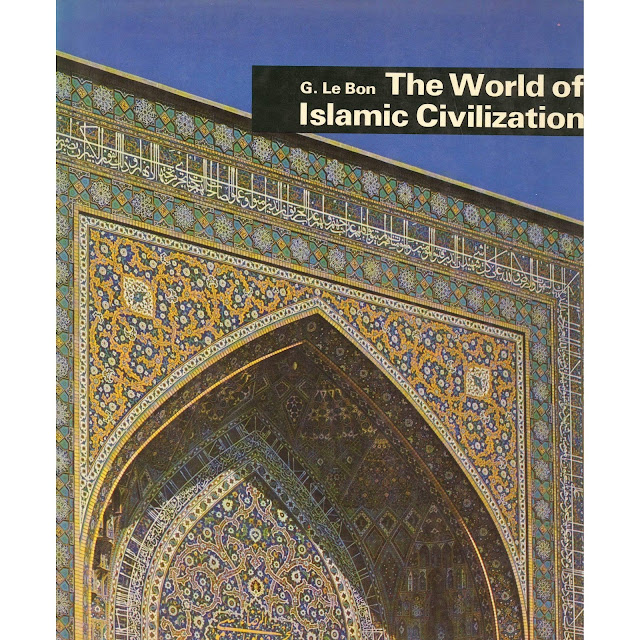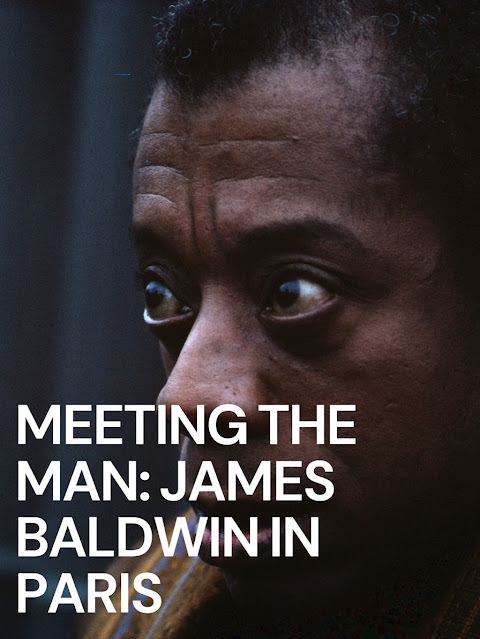"From Slavery to Freedom: A History of the American Negro" John Hope Franklin (Alfred A. Knopf Company, 1947)
Since its original publication in 1947, From Slavery to Freedom has stood as the definitive his-tory of African Americans. Coauthors John Hope Franklin and Alfred A. Moss, Jr., give us a vividly detailed account of the journey of African Americans from their origins in the civilizations of Africa, through their years of slavery in the New World, to the successful struggle for freedom and its aftermath in the West Indies, Latin America, and the United States.
The book deals in considerable detail with the period after slavery, including the arduous struggle for first-class citizenship that has extended into the twentieth century. Many developments in recent African American history are examined, including demographic change; educational efforts; literary and cultural changes; problems in housing, health, juvenile matters, and poverty; the expansion of the black middle class; and the persistence of discrimination in the administration of justice.
John Hope Franklin is James B. Duke Professor Emeritus at Duke University, and was for seven years Professor of Legal History at Duke University Law School. He has been the recipient of numerous honors and awards, including the National Endowment for the Humanities Charles Frankel Award. He is the author of many books on African-American history, including The Color Line: Legacy for the Twenty-first Century (1993) and Race and History (1989).
............................
"From Slavery to Freedom: A History of the American Negro"
John Hope Franklin
New York: Alfred A. Knopf Company
1947
622 pp.
............................
Contents
1. Land of Their Ancestors. Ghana. Mali. Songhay. Other States -- 2. The African Way of Life. Political Institutions. Economic Life. Social Organization. Religion. The Arts. The Transplantation of African Culture -- 3. The Slave Trade and the New World. European and Asian Interests. Africans in the New World. The Big Business of Slave Trading. One-Way Passage. Colonial Enterprise in the Caribbean. The Plantation System. Slavery in Mainland Latin America -- 4. Colonial Slavery. Virginia and Maryland. The Carolinas and Georgia. The Middle Colonies. Blacks in Colonial New England -- 5. That All May Be Free. Slavery and the Revolutionary Philosophy. Blacks Fighting for American Independence. The Movement to Manumit Slaves. The Conservative Reaction -- 6. Blacks in the New Republic. The Black Population in 1790. Slavery and the Industrial Revolution. Trouble in the Caribbean. The Closing of the Slave Trade. The Search for Independence -- 7. Blacks and Manifest Destiny. Frontier Influences
Black Pioneers in the Westward March. The War of 1812. Emergence of the Cotton Kingdom. The Domestic Slave Trade. Persistence of the African Trade -- 8. That Peculiar Institution. Scope and Extent. The Slave Codes. Plantation Scene. Nonagricultural Pursuits. Social Considerations. The Slave's Reaction to Bondage -- 9. Quasi-Free Blacks. American Anomaly. Economic and Social Development. The Struggle in the North and West. Colonization -- 10. Slavery and Intersectional Strife. The North Attacks. Black Abolitionists. The Underground Railroad. The South Strikes Back. Stress and Strain in the 1850s -- 11. Civil War. Uncertain Federal Policy. Moving toward Freedom. Confederate Policy. Blacks Fighting for the Union. Victory! -- 12. The Effort to Attain Peace. Reconstruction and the Nation. Conflicting Policies. Relief and Rehabilitation. Economic Adjustment. Political Currents -- 13. Losing the Peace. The Struggle for Domination. The Overthrow of Reconstruction. The Movement for Disfranchisement
The Triumph of White Supremacy -- 14. Philanthropy and Self-Help. Northern Philanthropy and African-American Education. The Age of Booker T. Washington. Struggles in the Economic Sphere. Social and Cultural Growth -- 15. The Color Line. The New American Imperialism. America's Empire of Darker Peoples. Urban Problems. The Pattern of Violence. New Solutions for Old Problems -- 16. In Pursuit of Democracy. World War I. The Enlistment of African Americans. Service Overseas. On the Home Front -- 17. Democracy Escapes. The Reaction. The Voice of Protest Rises -- 18. The Harlem Renaissance and the Politics of African-American Culture. Socioeconomic Problems and African-American Literature. Harlem, the Seat and Center. The Circle Widens -- 19. The New Deal. Depression. Political Regeneration. Roosevelt's "Black Cabinet" Government Agencies and Relief for Blacks. Black Labor and the Unions -- 20. The American Dilemma. Trends in Education. Opportunities for Self-Expression. The World of African Americans
One World or Two? -- 21. Fighting for the Four Freedoms. Arsenal of Democracy. Blacks in the Service. The Home Fires. The United Nations and Human Welfare -- 22. African Americans in the Cold War Era. Progress. Reaction. Urbanization and Its Consequences. Writers and Artists in Later Years. Heard and Seen by Millions -- 23. The Black Revolution. The Road to Revolution. The Beginnings. Marching for Freedom. The Illusion of Equality. Revolution at High Tide. Balance Sheet of the Revolution -- 24. New Forms of Activism. The Reagan Years. A New Economic and Political Thrust. The Bush Quadrennium. Stirrings. African Americans and the World. "On the Pulse of Morning" -- App. The Emancipation Proclamation -- App. Fair Employment Executive Order -- App. Government's Responsibility: Securing the Rights -- App. Brown v. Board of Education -- App. John F. Kennedy: Special Message to the Congress on Civil Rights -- App. The Civil Rights Act of 1964 -- App. The Voting Rights Act of 1965
Summary
This work charts the journey of African Americans from their origins in the civilizations of Africa, through slavery in the Western Hemisphere, to their struggle for freedom in the West Indies, Latin America and the United States.
1. Land of Their Ancestors. Ghana. Mali. Songhay. Other States -- 2. The African Way of Life. Political Institutions. Economic Life. Social Organization. Religion. The Arts. The Transplantation of African Culture -- 3. The Slave Trade and the New World. European and Asian Interests. Africans in the New World. The Big Business of Slave Trading. One-Way Passage. Colonial Enterprise in the Caribbean. The Plantation System. Slavery in Mainland Latin America -- 4. Colonial Slavery. Virginia and Maryland. The Carolinas and Georgia. The Middle Colonies. Blacks in Colonial New England -- 5. That All May Be Free. Slavery and the Revolutionary Philosophy. Blacks Fighting for American Independence. The Movement to Manumit Slaves. The Conservative Reaction -- 6. Blacks in the New Republic. The Black Population in 1790. Slavery and the Industrial Revolution. Trouble in the Caribbean. The Closing of the Slave Trade. The Search for Independence -- 7. Blacks and Manifest Destiny. Frontier Influences
Black Pioneers in the Westward March. The War of 1812. Emergence of the Cotton Kingdom. The Domestic Slave Trade. Persistence of the African Trade -- 8. That Peculiar Institution. Scope and Extent. The Slave Codes. Plantation Scene. Nonagricultural Pursuits. Social Considerations. The Slave's Reaction to Bondage -- 9. Quasi-Free Blacks. American Anomaly. Economic and Social Development. The Struggle in the North and West. Colonization -- 10. Slavery and Intersectional Strife. The North Attacks. Black Abolitionists. The Underground Railroad. The South Strikes Back. Stress and Strain in the 1850s -- 11. Civil War. Uncertain Federal Policy. Moving toward Freedom. Confederate Policy. Blacks Fighting for the Union. Victory! -- 12. The Effort to Attain Peace. Reconstruction and the Nation. Conflicting Policies. Relief and Rehabilitation. Economic Adjustment. Political Currents -- 13. Losing the Peace. The Struggle for Domination. The Overthrow of Reconstruction. The Movement for Disfranchisement
The Triumph of White Supremacy -- 14. Philanthropy and Self-Help. Northern Philanthropy and African-American Education. The Age of Booker T. Washington. Struggles in the Economic Sphere. Social and Cultural Growth -- 15. The Color Line. The New American Imperialism. America's Empire of Darker Peoples. Urban Problems. The Pattern of Violence. New Solutions for Old Problems -- 16. In Pursuit of Democracy. World War I. The Enlistment of African Americans. Service Overseas. On the Home Front -- 17. Democracy Escapes. The Reaction. The Voice of Protest Rises -- 18. The Harlem Renaissance and the Politics of African-American Culture. Socioeconomic Problems and African-American Literature. Harlem, the Seat and Center. The Circle Widens -- 19. The New Deal. Depression. Political Regeneration. Roosevelt's "Black Cabinet" Government Agencies and Relief for Blacks. Black Labor and the Unions -- 20. The American Dilemma. Trends in Education. Opportunities for Self-Expression. The World of African Americans
One World or Two? -- 21. Fighting for the Four Freedoms. Arsenal of Democracy. Blacks in the Service. The Home Fires. The United Nations and Human Welfare -- 22. African Americans in the Cold War Era. Progress. Reaction. Urbanization and Its Consequences. Writers and Artists in Later Years. Heard and Seen by Millions -- 23. The Black Revolution. The Road to Revolution. The Beginnings. Marching for Freedom. The Illusion of Equality. Revolution at High Tide. Balance Sheet of the Revolution -- 24. New Forms of Activism. The Reagan Years. A New Economic and Political Thrust. The Bush Quadrennium. Stirrings. African Americans and the World. "On the Pulse of Morning" -- App. The Emancipation Proclamation -- App. Fair Employment Executive Order -- App. Government's Responsibility: Securing the Rights -- App. Brown v. Board of Education -- App. John F. Kennedy: Special Message to the Congress on Civil Rights -- App. The Civil Rights Act of 1964 -- App. The Voting Rights Act of 1965
Summary
This work charts the journey of African Americans from their origins in the civilizations of Africa, through slavery in the Western Hemisphere, to their struggle for freedom in the West Indies, Latin America and the United States.







